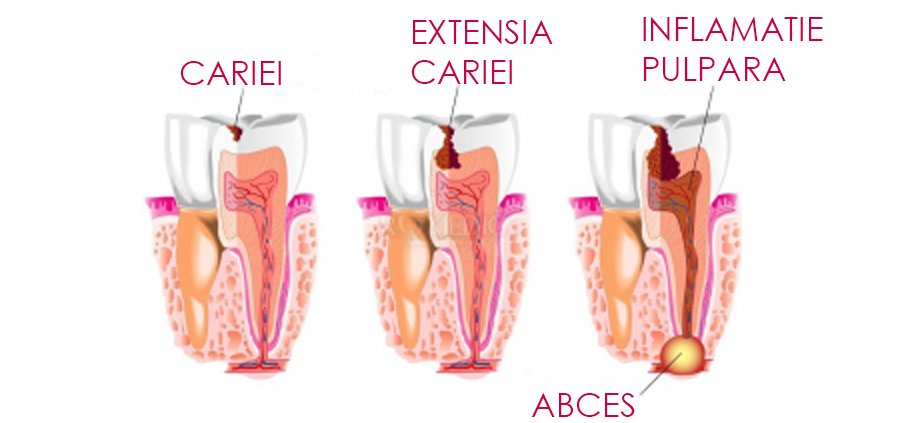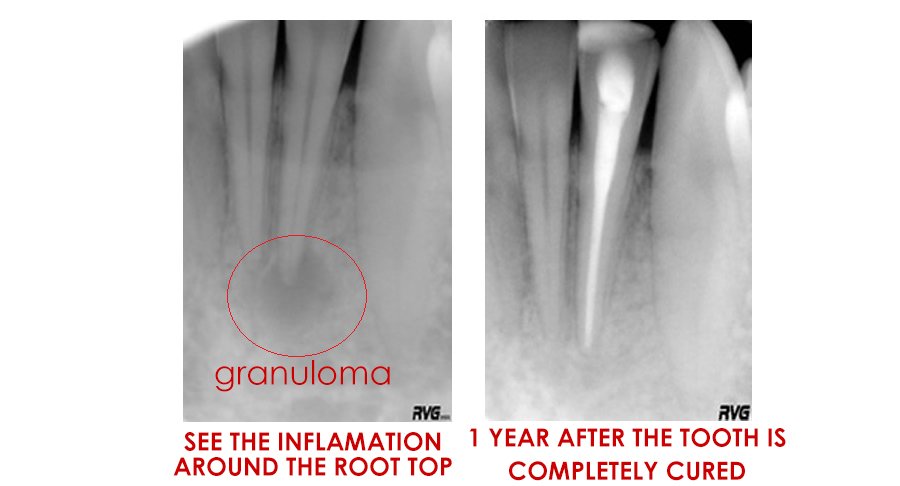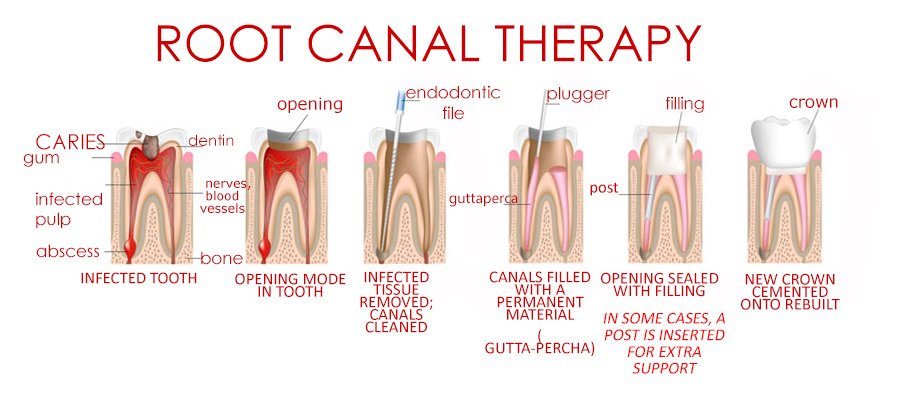ENDODONTICS
Endodontics implies treatments of root canals and conservative therapy of periapical changes (abscesses). Deep caries or tooth trauma may cause pulpitis i.e. tooth nerve inflammation the symptom of which is strong spontaneous pain. This requires dental intervention in order to stop the pain and further progression of inflammation of the tissue around the tooth root that may result in an abscess or a cyst.

Endodontic therapy includes the treatment of root canals that removes tooth pulp changed due to inflammation (a “nerve”), spreading, disinfection and canals filling. Thanks to RVG, rotating Ni-Ti instruments, 3-D canal obturation and our years of hands-on experience in our clinic endodontic therapy is a painless and efficient treatment requiring a minimum number of visits!

The most common cause of a damaged nerve is deep caries and bacteria that directly affect the nerve, trauma and extensive tooth shaping.
- the basic symptom is pain. A spontaneous pain or pain that occurs upon irritation lasting longer than 10 seconds is typical of the acute inflammation to a tooth nerve: it’s also quite usual that the pain increases at night when we’re lying down horizontally. The pain is poorly relieved by drugs. Such a toothache calls for an urgent dental treatment.
- a pain caused by biting occurs when the inflammation has spread from the tooth to the surrounding bone.
- fistula – a small pimple on gums above the tooth – typical of inflammations that last longer (abscess)
- swelling cheeks
- fever

An endodontically treated tooth may be every bit as efficient as a healthy one. However, we must be aware that a tooth filled in this way loses its humidity and elasticity, becomes fragile and may fracture if burdened. Since the most of endodontically treated teeth before the treatment already had extensive caries or a big filling, such teeth should be covered with a cosmetic crown to decrease the risk of tooth and/or root fracturing.
